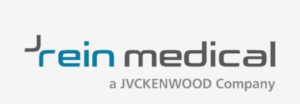PRIVACY POLICY
Last Update: 12. November 2021
Table of contents
- Controller
- Contact information of the data protection officer
- Overview of processing operations
- Legal Bases for the Processing
- Security Precautions
- Erasure of data
- Provision of online services and web hosting
- Changes and Updates to the Privacy Policy
- Rights of Data Subjects
- Terminology and Definitions
Controller
Rein Medical GmbH
Monforts Quartier 23
41238 Mönchengladbach
Authorised Representatives: Dieter Cyganek, Stephan Rein, Thorsten Godulla, Kazumasa Hirota, Masahiro Shimoda.
E-mail address: info@reinmedical.com.
Phone: +49 2161 / 6984 – 0.
Legal Notice: https://4hospitals.de/default/en_imprint/.
Contact information of the data protection officer
Rahn Datenschutz GmbH
Sven Rahn
Sophienstraße 35
41065 Mönchengladbach
datenschutzbeauftragter.reinmedical@rahn-datenschutz.de
02161/8280714
Overview of processing operations
The following table summarises the types of data processed, the purposes for which they are processed and the concerned data subjects.
Categories of Processed Data
- Content data (e.g. text input, photographs, videos).
- Contact data (e.g. e-mail, telephone numbers).
- Meta/communication data (e.g. device information, IP addresses).
- Usage data (e.g. websites visited, interest in content, access times).
Categories of Data Subjects
- Communication partner (Recipients of e-mails, letters, etc.).
- Users (e.g. website visitors, users of online services).
Purposes of Processing
- Provision of our online services and usability.
- Direct marketing (e.g. by e-mail or postal).
- Contact requests and communication.
Legal Bases for the Processing
In the following, you will find an overview of the legal basis of the GDPR on which we base the processing of personal data. Please note that in addition to the provisions of the GDPR, national data protection provisions of your or our country of residence or domicile may apply. If, in addition, more specific legal bases are applicable in individual cases, we will inform you of these in the data protection declaration.
- Consent (Article 6 (1) (a) GDPR) – The data subject has given consent to the processing of his or her personal data for one or more specific purposes.
- Legitimate Interests (Article 6 (1) (f) GDPR) – Processing is necessary for the purposes of the legitimate interests pursued by the controller or by a third party, except where such interests are overridden by the interests or fundamental rights and freedoms of the data subject which require protection of personal data.
National data protection regulations in Germany: In addition to the data protection regulations of the General Data Protection Regulation, national regulations apply to data protection in Germany. This includes in particular the Law on Protection against Misuse of Personal Data in Data Processing (Federal Data Protection Act – BDSG). In particular, the BDSG contains special provisions on the right to access, the right to erase, the right to object, the processing of special categories of personal data, processing for other purposes and transmission as well as automated individual decision-making, including profiling. Furthermore, it regulates data processing for the purposes of the employment relationship (§ 26 BDSG), in particular with regard to the establishment, execution or termination of employment relationships as well as the consent of employees. Furthermore, data protection laws of the individual federal states may apply.
Security Precautions
We take appropriate technical and organisational measures in accordance with the legal requirements, taking into account the state of the art, the costs of implementation and the nature, scope, context and purposes of processing as well as the risk of varying likelihood and severity for the rights and freedoms of natural persons, in order to ensure a level of security appropriate to the risk.
The measures include, in particular, safeguarding the confidentiality, integrity and availability of data by controlling physical and electronic access to the data as well as access to, input, transmission, securing and separation of the data. In addition, we have established procedures to ensure that data subjects‘ rights are respected, that data is erased, and that we are prepared to respond to data threats rapidly. Furthermore, we take the protection of personal data into account as early as the development or selection of hardware, software and service providers, in accordance with the principle of privacy by design and privacy by default.
SSL encryption (https): In order to protect your data transmitted via our online services in the best possible way, we use SSL encryption. You can recognize such encrypted connections by the prefix https:// in the address bar of your browser.
Erasure of data
The data processed by us will be erased in accordance with the statutory provisions as soon as their processing is revoked or other permissions no longer apply (e.g. if the purpose of processing this data no longer applies or they are not required for the purpose).
If the data is not deleted because they are required for other and legally permissible purposes, their processing is limited to these purposes. This means that the data will be restricted and not processed for other purposes. This applies, for example, to data that must be stored for commercial or tax reasons or for which storage is necessary to assert, exercise or defend legal claims or to protect the rights of another natural or legal person.
In the context of our information on data processing, we may provide users with further information on the deletion and retention of data that is specific to the respective processing operation.
Provision of online services and web hosting
In order to provide our online services securely and efficiently, we use the services of one or more web hosting providers from whose servers (or servers they manage) the online services can be accessed. For these purposes, we may use infrastructure and platform services, computing capacity, storage space and database services, as well as security and technical maintenance services.
The data processed within the framework of the provision of the hosting services may include all information relating to the users of our online services that is collected in the course of use and communication. This regularly includes the IP address, which is necessary to be able to deliver the contents of online services to browsers, and all entries made within our online services or from websites.
Collection of Access Data and Log Files: We, ourselves or our web hosting provider, collect data on the basis of each access to the server (so-called server log files). Server log files may include the address and name of the web pages and files accessed, the date and time of access, data volumes transferred, notification of successful access, browser type and version, the user’s operating system, referrer URL (the previously visited page) and, as a general rule, IP addresses and the requesting provider.
The server log files can be used for security purposes, e.g. to avoid overloading the servers (especially in the case of abusive attacks, so-called DDoS attacks) and to ensure the stability and optimal load balancing of the servers.
- Processed data types: Content data (e.g. text input, photographs, videos), Usage data (e.g. websites visited, interest in content, access times), Meta/communication data (e.g. device information, IP addresses).
- Data subjects: Users (e.g. website visitors, users of online services).
- Purposes of Processing: Provision of our online services and usability.
- Legal Basis: Legitimate Interests (Article 6 (1) (f) GDPR).
Services and service providers being used:
- ALL-INKL: Services in the field of the provision of information technology infrastructure and related services (e.g. storage space and/or computing capacities); Service provider: ALL-INKL.COM – Neue Medien Münnich, Inhaber: René Münnich, Hauptstraße 68, 02742 Friedersdorf, Germany; Website: https://all-inkl.com/; Privacy Policy: https://all-inkl.com/datenschutzinformationen/; DPA: concluded with provider.
Changes and Updates to the Privacy Policy
We kindly ask you to inform yourself regularly about the contents of our data protection declaration. We will adjust the privacy policy as changes in our data processing practices make this necessary. We will inform you as soon as the changes require your cooperation (e.g. consent) or other individual notification.
If we provide addresses and contact information of companies and organizations in this privacy policy, we ask you to note that addresses may change over time and to verify the information before contacting us.
Rights of Data Subjects
As data subject, you are entitled to various rights under the GDPR, which arise in particular from Articles 15 to 21 of the GDPR:
- Right to Object: You have the right, on grounds arising from your particular situation, to object at any time to the processing of your personal data which is based on letter (e) or (f) of Article 6(1) GDPR, including profiling based on those provisions. Where personal data are processed for direct marketing purposes, you have the right to object at any time to the processing of the personal data concerning you for the purpose of such marketing, which includes profiling to the extent that it is related to such direct marketing.
- Right of withdrawal for consents: You have the right to revoke consents at any time.
- Right of access: You have the right to request confirmation as to whether the data in question will be processed and to be informed of this data and to receive further information and a copy of the data in accordance with the provisions of the law.
- Right to rectification: You have the right, in accordance with the law, to request the completion of the data concerning you or the rectification of the incorrect data concerning you.
- Right to Erasure and Right to Restriction of Processing: In accordance with the statutory provisions, you have the right to demand that the relevant data be erased immediately or, alternatively, to demand that the processing of the data be restricted in accordance with the statutory provisions.
- Right to data portability: You have the right to receive data concerning you which you have provided to us in a structured, common and machine-readable format in accordance with the legal requirements, or to request its transmission to another controller.
- Complaint to the supervisory authority: In accordance with the law and without prejudice to any other administrative or judicial remedy, you also have the right to lodge a complaint with a data protection supervisory authority, in particular a supervisory authority in the Member State where you habitually reside, the supervisory authority of your place of work or the place of the alleged infringement, if you consider that the processing of personal data concerning you infringes the GDPR.
Terminology and Definitions
This section provides an overview of the terms used in this privacy policy. Many of the terms are drawn from the law and defined mainly in Article 4 GDPR. The legal definitions are binding. The following explanations, on the other hand, are intended above all for the purpose of comprehension. The terms are sorted alphabetically.
- Controller: „Controller“ means the natural or legal person, public authority, agency or other body which, alone or jointly with others, determines the purposes and means of the processing of personal data.
- Personal Data: „personal data“ means any information relating to an identified or identifiable natural person („data subject“); an identifiable natural person is one who can be identified, directly or indirectly, in particular by reference to an identifier such as a name, an identification number, location data, an online identifier or to one or more factors specific to the physical, physiological, genetic, mental, economic, cultural or social identity of that natural person.
- Processing: The term „processing“ covers a wide range and practically every handling of data, be it collection, evaluation, storage, transmission or erasure.
Featured companies:




